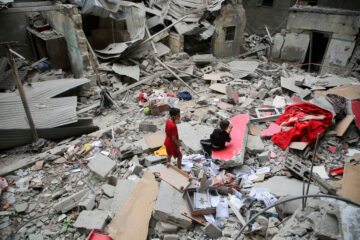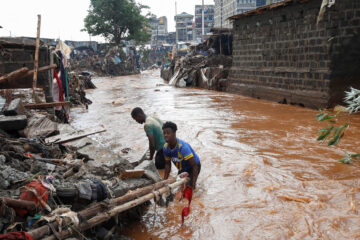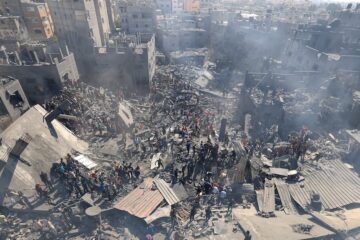Burundi police launch crackdown as nine are killed in capital
Gunmen executed nine people in Burundi\’s capital hours before police launched house-to-house searches for weapons on Sunday, amid international fears of fresh bloodletting in the central African nation.
Hundreds of police and soldiers ringed the opposition flashpoint Mutakura district of the capital Bujumbura early Sunday to start a widely feared crackdown on "enemies of the nation."
Residents said security forces were going door to door in the raids, which came on the eve of a special meeting of the United Nations Security Council to discuss a surge in violence and ethnic tensions in Burundi.
City mayor Freddy Mbonimpa said police were hunting for "hidden weapons," following an arms amnesty, insisting the searches were being "done professionally, because the police are using weapon detectors."
Officers later displayed around a dozen rifles and grenades they said had been seized in the raids, which officials said would continue in coming days.
The mayor also said seven people were killed in an "execution" attack on a bar on Saturday night and that a probe had been launched to find the "assassins." Two others died later of their wounds.
Witnesses said attackers stormed into the bar, forcing those drinking outside to enter and lie on the ground, before opening fire.
Burundi has suffered a dramatic rise in killings, arrests and detentions since President Pierre Nkurunziza launched a controversial bid to stand for a third term in April.
He was re-elected in July.
At least 200 people have died in the turmoil and some 200,000 have fled the country since April.
The government weapons amnesty has triggered fresh international alarm over fears it could unleash further bloodletting in a country still recovering from a 13-year civil war that ended in 2006.
"The recurring violence and killings in Burundi must stop," UN chief Ban Ki-moon said Friday, while France denounced a recent wave of "hate speech" in the tiny, landlocked nation and called for a UN Security Council meeting on Monday to discuss the deteriorating situation.
Echoing those concerns, the United States on Saturday said that "inflammatory rhetoric" and the government\’s planned security crackdown were "increasing the risk of an outbreak of mass violence".
In Rwanda, President Paul Kagame accused Burundi\’s leaders of carrying out "massacres" on their people in his most critical speech yet of the unrest in the neighbouring state.
"People die every day, corpses litter the streets… How can the leaders allow their population to be massacred from morning to night?" Kagame said on Friday.
Relations between Rwanda and neighbouring Burundi are tense, with Bujumbura accusing Kigali of backing those who oppose the president\’s third term in office.
Burundian presidential communications chief Willy Nyamitwe on Sunday dismissed Kagame\’s "inappropriate remarks".
Many residents living in parts of Bujumbura considered opposition strongholds have fled the capital, nearly emptying districts that have seen some of the worst violence in recent months.
Marie, a secretary in her forties, left her home in Mutakura on Saturday ahead of the weapons deadline, taking her five children to a relative\’s house in a calmer part of the capital.
"I was terrified, I understood that this time they would kill every last one of us," she said.
The government dismissed the concerns over its deadline to hand in illegal weapons, saying it wanted only to crush "terrorism".
"There will be no war or genocide," Nyamitwe told AFP on Saturday.
The spike in unrest has sparked fears Burundi could slide back into conflict after its 1993-2006 civil war, when some 300,000 people died as rebels from the majority Hutu people clashed with an army dominated by the minority Tutsis.
Last week, the country\’s Senate president Reverien Ndikuriyo threatened to "pulverise" regime opponents who do not lay down arms before the Saturday deadline.
"Today, the police shoot in the legs… but when the day comes that we tell them to go to \’work\’, do not come crying to us," he said.
The loaded term "work" was a euphemism used in Rwanda during the 1994 genocide to describe the mass killings of at least 800,000 mainly Tutsi people by extremist Hutu militias.
SOURCE: AFP
[do_widget_area inner_adsbar]











